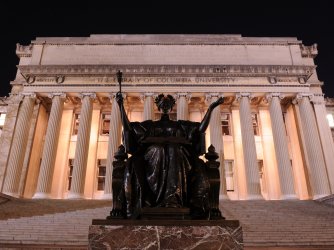Table of Contents
University Conduct Boards Lack Training Standards for Student Members

Stephanie Keaveney is a FIRE summer intern.
Last year, I received a few hours of training on a Friday afternoon and a copy of my university's code of conduct, officially becoming a member of Southern Oregon University’s (SOU) pool of “specially trained students” deemed competent to decide if my peers were “more likely than not” to have violated university standards.
The training was far less than extensive. It included what one could expect to encounter as a conduct board member, such as the types of cases we would be hearing and the general format for hearings. This came with specific advice not to “cave to the criers” and multiple reminders about the confidentiality of the conduct board process. What the training didn't include was information about the rights of students. The training did not impress upon us the importance of academic freedom, nor did we learn how to tell the difference between constitutionally protected and unprotected speech.
So when we were asked to decide cases involving students accused of violating harassment policies, irresponsible use of technology, or other violations involving constitutionally questionable community standards, we, like the accused students, were ill-equipped to decipher the difference between actual harassment and protected speech. As those who follow FIRE’s work have seen, many college conduct boards have a great deal of discretion in their proceedings and usually don’t strictly adhere to the principles of due process or freedom of speech on campus.
Involving students in conduct processes is a great idea in theory. At its core, it is reminiscent of a trial by a jury of your peers. The fundamental difference, though, is that a university conduct hearing is not a courtroom—the boards are required to meet a much lower standard of proof than in a criminal trial. An overwhelming majority of the time, the students who are being accused of wrongdoing do not understand their rights and thus cannot advocate against infringements of them.
It is imperative that all members of university conduct boards, especially students, are trained to understand due process as it pertains to university proceedings and constitutionally guaranteed individual rights. Without adequate training, it is impossible for conduct board members to decide properly that a student in fact violated university policy and is not being punished for expressive actions or speech which may be protected.
This lack of training is not unique to SOU, and the qualifications for individuals composing conduct boards becomes even more concerning when a student is accused of criminal behavior, such as sexual assault. Nonetheless, when students, if found responsible, face potential sanctions that range from probation to permanent expulsion, it is critical that whoever is making the judgement has been properly trained to understand and respect due process on our nation's campuses.
Recent Articles
FIRE’s award-winning Newsdesk covers the free speech news you need to stay informed.

Campus encampment bans rarely violate the First Amendment. Here’s why.

University provosts have bleak outlook on free expression in higher ed

With colleges punishing student protesters, campus due process is more important than ever
